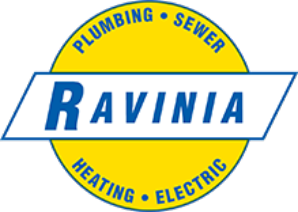
You already know the benefits of a standby generator, especially as opposed to portable generators:
- They turn on automatically to protect your home and possessions when the power goes out, unlike portable generators that must be turned on by hand (not much good if you are out of the house when the power goes out).
- They protect everything from food to important documents to your home and furnishings.
- Electrically powered medical devices will keep running.
- Your AC or furnace will keep the house at a healthy, comfortable temperature and the air quality good,
- You will save money because food won’t spoil, you won’t have flood expenses, you’ll be able to stay in your house instead of a hotel, and your homeowner’s insurance rate could go down.
- Security since indoor and outdoor lights, cameras and your security system will stay on.
So here are the eight tips for buying a standby generator:
1.Brand. Make sure you buy a reputable brand. Select a company that has been in business for a while. Check online reviews and talk to friends and relatives. And make sure the company provides strong warranty protection.
2. Contractor. Also make sure you select a reputable electrical contractor that can both help you select the generator that is right for you, then install it and train you in how to use it. Also make sure this contractor offers a maintenance plan including a service schedule and remote monitoring. Maintenance can extend the life of the unit and may be required to keep any warranty intact.
3. Assess your power needs to determine how powerful a unit you need. You can do so by determining requirements for essential items such as your furnace and air conditioner, refrigerator and sump pump. Or you can determine your total power needs to make sure everything keeps running. This table shows typical power needs for a wide variety of items
| Appliance | Wattage Requirement |
| Air Conditioner | 2,000-5,000 |
| Dryer | 1,800-6,000 |
| Microwave | 600-1,500 |
| Refrigerator | 300-800 |
| Space Heater | 700-1,500 |
| Sump Pump | 1,300-2,150 to start and 800-1,000 to operate |
| TV | 50-300 |
4. What type of fuel? There are three types of fuel that can power a standby generator. In terms of most to least appropriate:
a. Natural gas. This is the most preferred because natural gas will never run out (assuming you have a natural gas line connected to your home). Natural gas-powered generators will provide up to 26,000 watts of power, more than enough to power your home
b. Propane. Appropriate if you do not have a natural gas line. Propane-powered generators provide similar power as natural gas-powered units. But propane tanks run out, so you will always need a second tank. And if the tank used to power the generator runs out while you are away, that could create problems
c. Diesel. Diesel-powered generators provide way more power than the average home needs and are also very expensive.
5. Transfer switch. You will want an automatic transfer switch that will ensure the generator turns on manually whenever the power goes out, even if you are not home or sleeping.
6. Noise. Try to select a quieter model if possible, as standby generators can be quite loud and annoying to you and your neighbors.
7. Enclosure. Composite or aluminum enclosures will best prevent rust and corrosion.
8. Remote monitoring. Many models now allow you (or your electrical contractor) to check diagnostics and control the generator via Wi-Fi. The generator can also integrate with other Wi-Fi devices in your home.
Contact Ravinia Plumbing for Standby Generators
The licensed electricians at Ravinia Plumbing, Sewer, Heating & Electric can help you select and then install and maintain the standby generator appropriate for your home. Our customers have relied on us since 1928 (that’s 97 years!) for quality products, knowledgeable technicians, and superior service, including 24/7/365 emergency service. That is why we’ve made a name for ourselves as the most trusted plumbing, sewer, heating and air conditioning, and electrical company in Chicago’s North Shore and Northwest suburbs. Contact Ravinia Plumbing today to schedule an appointment.
